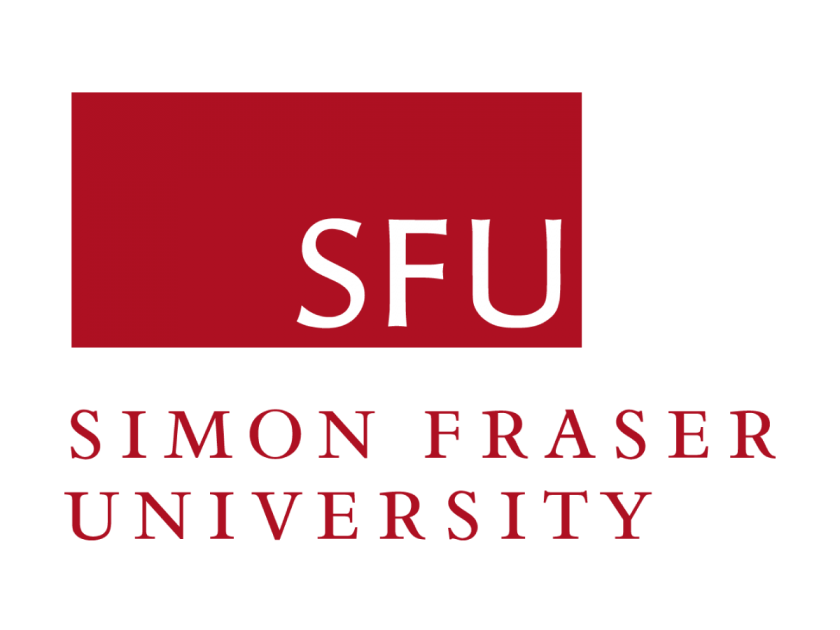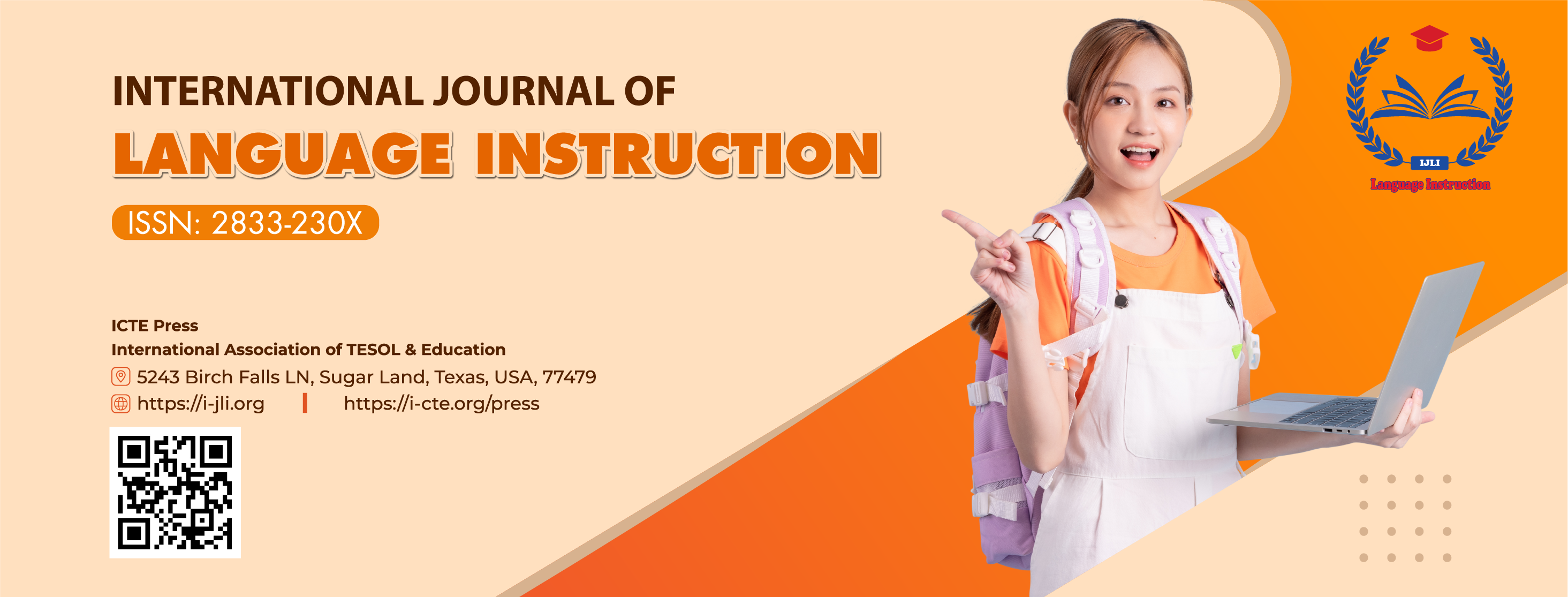EFL Students’ Perceptions of Peer Feedback in Writing Classes at a University in HCM City
DOI:
https://doi.org/10.54855/ijli.24322Keywords:
peer feedback, writing, academic writingAbstract
The study aimed to identify EFL students’ perceptions of peer feedback in writing classes at a university in HCM city. 60 English - major students participated in the study. The researcher employed a quantitative method with survey questionnaire as the instrument. The questionnaire was designed the students to express their perceptions about the importance and the benefits of peer feedback in their writing as well as their problems when they give and receive peer feedback. The data collected was analyzed, using SPSS software version 26. The results indicated that participants had positive responses towards peer feedback in learning writing skills though they faced some difficulties in those activities. Additionally, the learners responded that feedback from their peers about their writing performance provided them certain benefits, which contributed to improving their final writing products later.References
Ballantyne, R., Hughes, K., & Mylonas, A. (2002). Developing procedures for implementing peer assessment in large classes using an action research process. Assessment & Evaluation in Higher Education, 27(5), 427-441. https://doi.org/10.1080/0260293022000009302
Bamford, J. A. (2022). Investigating the impact of peer feedback on the writing performance of EFL learners. CELT Matters Online Journal, 6, 1-12.
Bitchener, J., Young, S., & Cameron, D. (2005). The effect of different types of corrective feedback on ESL student writing. Journal of second language writing, 14(3), 191-205. https://doi.org/10.1016/j.jslw.2005.08.001
Cheng, W., & Warren, M. (2005). Peer assessment of language proficiency. Language testing, 22(1), 93-121. https://doi.org/10.1191/0265532205lt298oa
Ciftci, H., & Kocoglu, Z. (2012). Effects of Peer E-Feedback on Turkish EFL Students’ Writing Performance. Journal of Educational Computing Research, 46(1), 61-84. https://doi.org/10.2190/EC.46.1.c
Donato, R. (2000). Socio-cultural contributions to understanding the foreign and
second language classroom. In J. P. Lantolf (Ed.), Socio-cultural theory and second language learning, 97-114. Oxford, England: Oxford University Press.
Fan, N. (2023). Exploring the Effects of Automated Written Corrective Feedback on EFL Students’ Writing Quality: A Mixed-Methods Study. SAGE Open, 13(2). https://doi.org/10.1177/21582440231181296
Falchikov, N. (1995). Peer feedback marking: Developing peer assessment. Innovations in Education and training International, 32(2), 175-187. https://doi.org/10.1080/1355800950320212
Ghadi, S. A. (2016). The effect of employing electronic peer assessment on Iranian EFL learners' writing ability and autonomy. Theory and Practice in Language Studies, 6(12), 2272. http://dx.doi.org/10.17507/tpls.0612.06
Hovardas, T., Tsivitanidou, O. E., & Zacharia, Z. C. (2014). Peer versus expert feedback: An investigation of the quality of peer feedback among secondary school students. Computers & Education, 71, 133-152. https://doi.org/10.1016/j.compedu.2013.09.019
Huisman, B., Saab, N., van den Broek, P., & van Driel, J. (2019). The impact of formative peer feedback on higher education students’ academic writing: a Meta-Analysis. Assessment & Evaluation in Higher Education, 44(6), 863-880. https://doi.org/10.1080/02602938.2018.1545896
Hyland, K., & Hyland F. (2006). Feedback on second language students’ writing. Language Teaching, 39(2), 83-101. New York, NY: Cambridge University Press.
Jalaluddin, I., Paramasivam, S., Husain, S., & Bakar, R. A. (2015). The consistency between writing self-efficacy and writing performance. Journal of Language Teaching and Research, 6(3), 545. http://dx.doi.org/10.17507/jltr.0603.09
Lee, I (1998). Supporting greater autonomy in language teaching. ELT Journal, 52(4), 282-289. https://doi.org/10.1093/elt/52.4.282
Nguyen, H. T. (2016). Peer Feedback Practice in EFL Tertiary Writing Classes. English Language Teaching, 9(6), 76-91.
Nunan, D. (1989). Designing tasks for the communicative classroom. Cambridge university press.
Nurhayati, A. (2020). The Implementation of Formative Assessment in EFL Writing: A Case Study at a Secondary School in Indonesia. Pedagogy: Journal Of English Language Teaching, 8(2), 126-137. https://doi.org/10.32332/pedagogy.v8i2.2263
Omelicheva, M. Y. (2005). Self and peer evaluation in undergraduate education: Structuring conditions that maximize its promises and minimize the perils. Journal of Political Science Education, 1(2), 191-205. https://doi.org/10.1080/15512160590961784
Paulus, T. M. (1999). The effect of peer and teacher feedback on student writing. Journal of second language writing, 8(3), 265-289. https://doi.org/10.1016/S1060-3743(99)80117-9
Phan, T. T. Q. (2023). EFL Students’ Perceptions towards Cooperative Learning in Writing Skills at a University in the Mekong Delta. International Journal of Language Instruction, 2(3), 48–62. https://doi.org/10.54855/ijli.23232
Richter, K. & Smith-Dluha, G. (2019). Student perception of electronic peer feedback in the EFL writing classroom. CELT Matters 3, 1-8.
Shute, V. J. (2008). Focus on formative feedback. Review of educational research, 78(1), 153-189. https://doi.org/10.3102/0034654307313795
Sirikarn, K. (2019). Promoting peer feedback in developing students’ English writing ability in L2 writing class. International Education Studies, 12(9), 76-90. https://doi.org/10.5539/ies.v12n9p76
Sirikarn, K. (2019). Students’ attitudes toward peer feedback: Paving a way for students’ English writingimprovement. English Language Teaching, 12(7), 107-119. https://doi.org/10.5539/elt.v12n7p107
Sukumaran, K., Dass, R. Students’ Perspectives on the Use of Peer Feedback in an English as a Second Language Writing Class. J Interdiscip Res Educ 4, 3 (2014). https://doi.org/10.7603/s40933-014-0003-3
Vo, T. T. M. (2022). EFL Students’ Attitudes Towards Teacher Correction and Peer Correction in Writing Skills. International Journal of Language Instruction, 1(1), 155–173. https://doi.org/10.54855/ijli.221113
Vygotsky, L. S. (1978). Mind in society. Cambridge, MA: Harvard University press.
Weigle, S. C. (2002). Assessing writing. Cambridge University Press.
Williams, W. C. (1992). Paterson (Vol. 806). New Directions Publishing.
Xiao, Y., & Lucking, R. (2008). The impact of two types of peer assessment on students' performance and satisfaction within a Wiki environment. The Internet and Higher Education, 11(3-4), 186-193. https://doi.org/10.1016/j.iheduc.2008.06.005
Downloads
Published
Issue
Section
License
Copyright (c) 2024 Dang Thi Hong Nhung

This work is licensed under a Creative Commons Attribution 4.0 International License.
The copyright of all articles published in the International Journal of Language Instruction (ijli) remains with the Authors, i.e. Authors retain full ownership of their article. Permitted third-party reuse of the open access articles is defined by the applicable Creative Commons (CC) end-user license which is accepted by the Authors upon submission of their paper. All articles in the ijli are published under the CC BY-NC 4.0 license, meaning that end users can freely share an article (i.e. copy and redistribute the material in any medium or format) and adapt it (i.e. remix, transform and build upon the material) on the condition that proper attribution is given (i.e. appropriate credit, a link to the applicable license and an indication if any changes were made; all in such a way that does not suggest that the licensor endorses the user or the use) and the material is only used for non-commercial purposes.
Authors are able to enter into separate, additional contractual arrangements for the non-exclusive distribution of the journal's published version of the work (e.g., post it to an institutional repository, in a journal or publish it in a book), with an acknowledgment of its initial publication in this journal.











